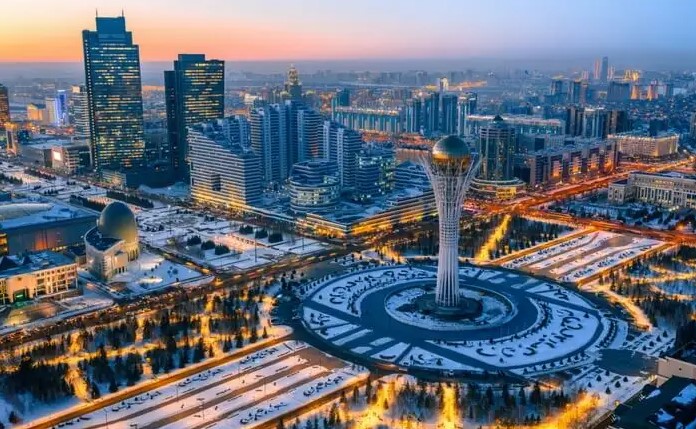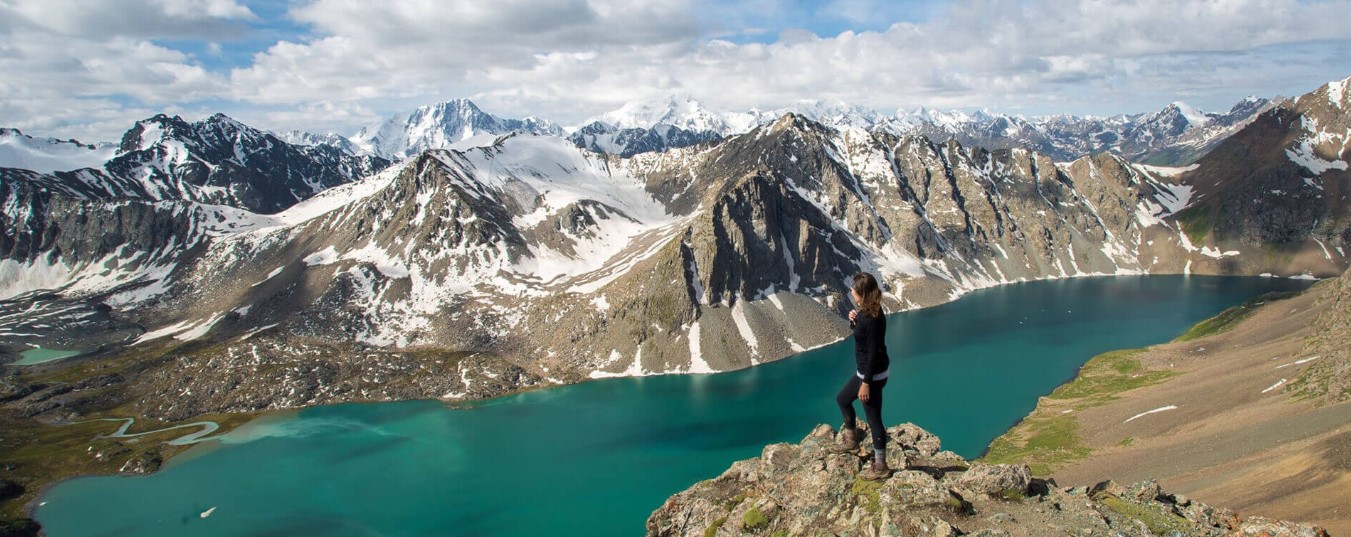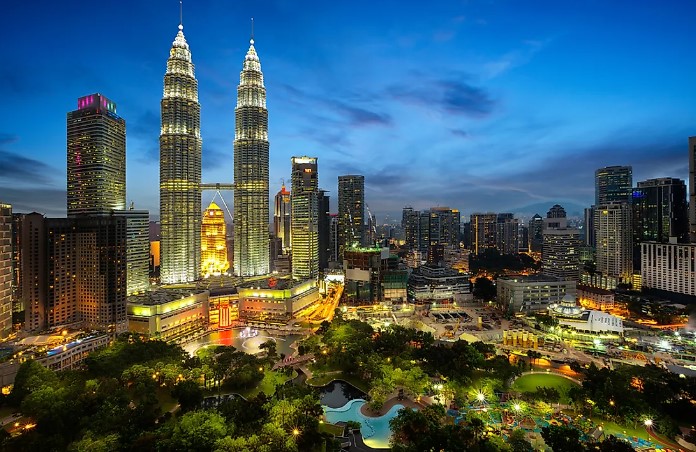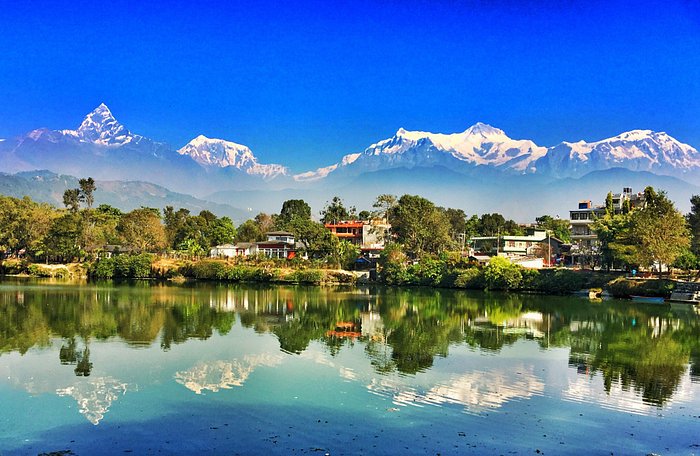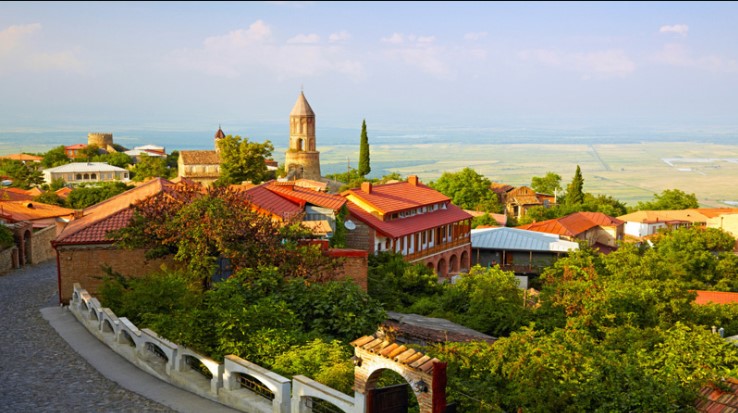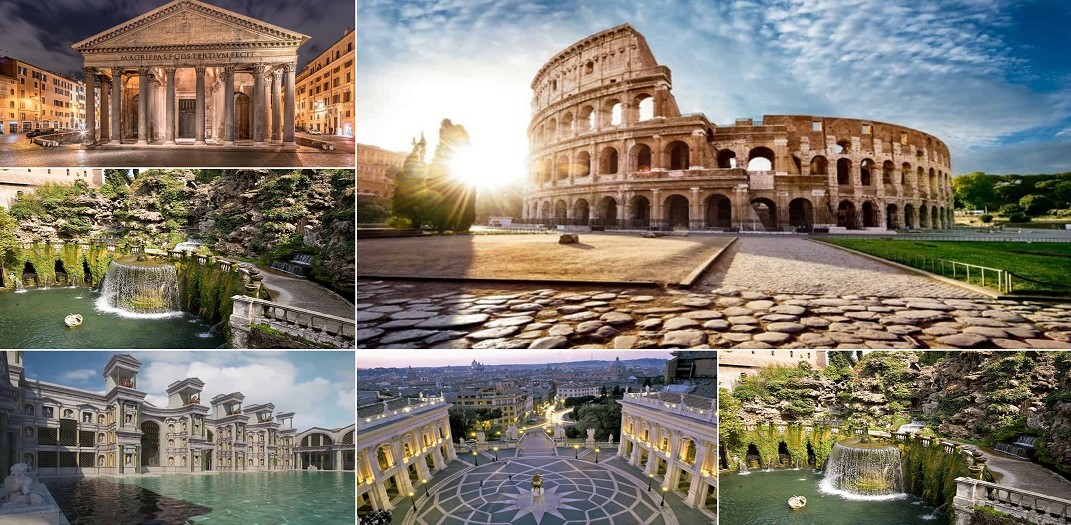Best Places to Visit in Arabia
Tourist Places & Attractions
Discover the top 25 best places to visit in Arabia, including breathtaking tourist attractions. Explore the beauty and culture of this enchanting region. Arabia, a land of rich history, diverse cultures, and stunning landscapes, offers a myriad of captivating tourist destinations that cater to all kinds of travelers. From ancient ruins to modern marvels, from vast deserts to lush oases, Arabia has something to offer everyone.
In this comprehensive guide, we will take you on a journey through the 25 best places to visit in Arabia, showcasing the top attractions and experiences you don't want to miss. Let's dive in and explore the magic of Arabia!
Al-Hijr (Madain Salih)
At the top of our list is Al-Hijr, also known as Madain Salih, a UNESCO World Heritage Site and an ancient archaeological wonder. Located in Saudi Arabia, this mesmerizing site is home to well-preserved tombs, elaborate facades, and fascinating Nabatean rock-cut structures. Stroll through the history as you marvel at the ingenuity of the Nabateans, who carved these magnificent structures into the sandstone cliffs. A true testament to the ingenuity of ancient civilizations.
Petra
Continuing with the theme of ancient wonders, Petra is undoubtedly one of the most iconic and breathtaking sites in Arabia. Situated in Jordan, Petra was once the capital of the Nabatean Kingdom and now stands as a UNESCO-listed archaeological park. The Treasury, a massive rock-cut façade, greets visitors upon entry, leaving them awe-inspired. The intricately carved facades, temples, and tombs set against a majestic desert backdrop make Petra an unforgettable destination.
Pyramids of Giza
Traveling to Egypt, we encounter the timeless Pyramids of Giza, one of the Seven Wonders of the Ancient World. The Great Pyramid, constructed for Pharaoh Khufu, is an architectural marvel that has withstood the test of time. These pyramids have captured the imagination of people worldwide for centuries, and their historical significance is beyond measure. A visit to the Pyramids of Giza is a journey back in time and an opportunity to marvel at the ancient engineering feats of the Egyptians.
Dubai
Shifting gears to the modern metropolis of Dubai, we find a city that has risen from the desert sands to become a global hub for tourism, business, and entertainment. Dubai boasts some of the world's tallest skyscrapers, luxurious shopping malls, and extravagant attractions. From the iconic Burj Khalifa, the tallest building on the planet, to the Palm Jumeirah, an artificial archipelago, Dubai is a playground for luxury seekers and adventure enthusiasts alike.
The Dead Sea
For a unique and surreal experience, the Dead Sea beckons. Located between Jordan and Israel, the Dead Sea is the lowest point on Earth and renowned for its high salt concentration, allowing swimmers to float effortlessly. Besides the therapeutic properties of its mineral-rich mud, the Dead Sea offers mesmerizing views of the surrounding landscapes, including the mountains of Moab and the Judean Desert.
Wadi Rum
Venturing into Jordan's desert wilderness, Wadi Rum stands as a testament to the raw beauty of nature. Also known as the Valley of the Moon, Wadi Rum boasts stunning sandstone mountains, ancient petroglyphs, and vast sandy plains. This breathtaking desert landscape has captivated visitors and filmmakers alike, serving as the backdrop for numerous Hollywood movies, including the iconic "Lawrence of Arabia."
Abu Dhabi
As the capital of the United Arab Emirates, Abu Dhabi offers a seamless blend of traditional Arab culture and modernity. From the majestic Sheikh Zayed Grand Mosque, an architectural masterpiece, to the opulent Emirates Palace, Abu Dhabi showcases the height of luxury and grandeur. Visitors can also explore the cultural heritage at the Heritage Village and indulge in world-class shopping and dining experiences.
The Nile River
Flowing through Egypt and several other countries, the Nile River is the longest river in the world and a lifeblood for the surrounding civilizations. A cruise along the Nile allows travelers to witness the historical treasures that line its banks, including ancient temples, tombs, and villages. The serene beauty of the river provides a unique perspective on the vibrant culture and history of the region.
Muscat
The capital city of Oman, Muscat, is a delightful blend of old-world charm and modern aspirations. The city boasts beautiful mosques, traditional souks, and stunning seafronts. The Sultan Qaboos Grand Mosque is a must-visit for its exquisite architecture and spiritual ambiance. Visitors can also explore the Mutrah Souq, a bustling marketplace offering a wide array of goods, including spices, textiles, and traditional crafts.
Luxor
Known as the "world's greatest open-air museum," Luxor in Egypt is home to some of the most remarkable ancient ruins, including the Karnak Temple and the Luxor Temple. The Valley of the Kings, where the tombs of pharaohs are buried, is a fascinating archaeological site that continues to amaze historians and explorers. A visit to Luxor is a journey into the heart of ancient Egyptian civilization.
The Empty Quarter (Rub' al Khali)
The Empty Quarter, also known as Rub' al Khali, is the largest sand desert in the world, covering parts of Saudi Arabia, Oman, the UAE, and Yemen. This vast expanse of shifting sand dunes and arid landscapes is a sight to behold. Adventurers can experience the thrill of desert safaris, camel treks, and witness the stunning sunrises and sunsets that grace this otherworldly landscape.
Jerusalem
A city of immense historical and religious significance, Jerusalem attracts millions of pilgrims and tourists every year. This holy city is sacred to three major religions: Christianity, Islam, and Judaism. Visitors can explore iconic sites such as the Western Wall, the Church of the Holy Sepulchre, and the Dome of the Rock. The profound spiritual atmosphere and the mingling of diverse cultures make Jerusalem an unparalleled destination.
Doha
The vibrant capital of Qatar, Doha, is a city of contrasts, combining a rich heritage with modern architecture. The Museum of Islamic Art, designed by the renowned architect I.M. Pei, is a masterpiece showcasing Islamic art from across centuries and regions. Souq Waqif, the traditional marketplace, offers a glimpse of Qatari culture and a chance to shop for traditional handicrafts and spices.
Sharm El-Sheikh
Nestled on the Red Sea coast, Sharm El-Sheikh in Egypt is a paradise for beach lovers and diving enthusiasts. The crystal-clear waters and vibrant marine life make it a top destination for snorkeling and scuba diving. Visitors can also explore the nearby Ras Mohammed National Park, a protected area with diverse ecosystems and breathtaking coral reefs.
Musandam Fjords
Located in Oman, the Musandam Peninsula is a hidden gem featuring dramatic fjords and stunning cliffs. Known as the "Norway of Arabia," Musandam offers tranquil boat cruises through its fjords, allowing visitors to witness the beauty of this secluded paradise. The marine life and picturesque landscapes provide a unique escape from the hustle and bustle of city life.
Riyadh
The capital of Saudi Arabia, Riyadh, is a modern city that has preserved its cultural heritage. The Masmak Fortress stands as a symbol of the city's history, while the Kingdom Centre Tower offers panoramic views of the bustling metropolis. Riyadh's vibrant art scene and traditional souks add to the charm of this dynamic destination.
Mount Sinai
For those seeking a spiritual journey or a scenic adventure, Mount Sinai in Egypt offers both. The mountain is considered sacred by Jews, Christians, and Muslims alike, as it is believed to be the place where Moses received the Ten Commandments. Hiking to the summit to catch the breathtaking sunrise is a bucket-list experience, and the views from the top are awe-inspiring.
Jerash
Traveling to Jordan, Jerash is an ancient city that boasts an impressive collection of well-preserved Roman ruins. The Oval Plaza, Hadrian's Arch, and the Temple of Artemis are just a few of the architectural wonders waiting to be explored. Jerash's archaeological treasures offer a captivating glimpse into the grandeur of the Roman Empire.
The Red Sea Coast
Stretching along the eastern border of Egypt, the Red Sea Coast offers some of the world's best diving and snorkeling opportunities. Destinations like Hurghada and Marsa Alam are known for their pristine beaches, vibrant coral reefs, and abundant marine life. The Red Sea's underwater world is a paradise for underwater photographers and marine enthusiasts.
Beirut
The capital of Lebanon, Beirut, is a city that has risen from the ashes of conflict to become a bustling cultural hub. The National Museum of Beirut showcases the country's rich history, while the vibrant nightlife and eclectic culinary scene add to the city's charm. Visitors can stroll along the Corniche, overlooking the Mediterranean Sea, and explore the vibrant neighborhoods that make Beirut a fascinating destination.
Buraidah
A hidden gem in Saudi Arabia, Buraidah is a city steeped in tradition and history. The King Abdullah Park, with its lush greenery and stunning lake, is a favorite spot for locals and tourists alike. Buraidah's rich heritage is evident in its traditional souks and historical buildings, providing an authentic glimpse into Saudi Arabian culture.
Fayoum Oasis
Southwest of Cairo, the Fayoum Oasis in Egypt is a tranquil retreat offering a different side of Egypt's landscapes. The serene Lake Qarun and the surrounding lush greenery create a stark contrast to the nearby deserts. Visitors can explore the remains of ancient Egyptian temples and enjoy birdwatching in the oasis.
Salalah
Known as the "Perfume Capital of Arabia," Salalah in Oman is famous for its fragrant frankincense and lush greenery, a rare sight in the Arabian Peninsula. Visitors can explore the ruins of Al Baleed Archaeological Park, a UNESCO World Heritage Site, and enjoy the picturesque landscapes of coconut-fringed beaches and rolling sand dunes.
Nizwa
A cultural gem in Oman, Nizwa is renowned for its historic fort and bustling souq. The Nizwa Fort, an architectural masterpiece, provides panoramic views of the city, and the nearby souq offers an authentic Arabian shopping experience. Nizwa's traditional crafts, such as silverware and pottery, make for unique souvenirs.
The Lost City of Ubar
In Oman's Rub' al Khali desert, the Lost City of Ubar is a legendary archaeological site shrouded in mystery. Also known as the Atlantis of the Sands, the ancient city's ruins were discovered in the heart of the desert. Exploring the remnants of this lost civilization is an adventure that appeals to history enthusiasts and adventure seekers alike.
The Dead Sea Scrolls
Housed in the Israel Museum in Jerusalem, the Dead Sea Scrolls are a significant archaeological discovery. These ancient manuscripts contain some of the earliest known copies of the Hebrew Bible and provide invaluable insights into the history and beliefs of ancient Jewish communities.
Socotra Island
Off the coast of Yemen, Socotra Island is a unique and biodiverse wonderland. Known as the "Galapagos of the Indian Ocean," Socotra is home to bizarre and alien-like plant species found nowhere else on Earth. Visitors can explore the Dragon's Blood Trees, relax on pristine beaches, and immerse themselves in the island's ecological marvels.
Helpful tips to plan your trip and Safety tips to ensure a memorable and secure journey
Planning a trip to Arabia can be exciting, but it's essential to prioritize safety as well. This comprehensive guide offers 5 helpful tips to plan your trip and 5 safety tips to ensure a memorable and secure journey. Planning a trip to Arabia can be an enchanting and culturally enriching experience. With its rich history, diverse landscapes, and hospitable people, Arabia offers an unforgettable adventure to travelers.
Embarking on a trip to Arabia is a truly enriching experience filled with captivating history, stunning landscapes, and warm hospitality. By following these 5 tips for planning your trip and 5 safety tips, you can ensure a smooth and memorable journey. Remember to respect the local culture, stay informed about security conditions, and embrace the spontaneity of travel. Arabia awaits with its wonders, and with proper preparation and awareness, you can create lifelong memories in this extraordinary region.
However, it's crucial to approach the planning process with care and prioritize safety while exploring this beautiful region. In this section, we will provide you with 5 essential tips on how to plan your trip to Arabia and 5 safety tips to ensure a smooth and secure journey. Whether you're a seasoned traveler or embarking on your first international adventure, these tips will help you make the most of your time in Arabia.
5 Tips How to Plan Your Trip to Arabia
Research the Destinations
Before setting foot in Arabia, it's essential to research the destinations you plan to visit thoroughly. Arabia is a vast region with numerous countries, each offering its unique charm and attractions. Whether you're interested in exploring ancient cities, relaxing on pristine beaches, or venturing into the desert, knowing the highlights of each location will help you create a well-rounded itinerary. Use reliable travel guides and online resources to gather information on the best places to visit, local customs, and any travel advisories that may be in place.
Secure Proper Documentation
Traveling to Arabia requires valid travel documents, including a passport and possibly a visa, depending on your nationality and the specific country you plan to visit. Make sure your passport has a minimum of six months' validity from your planned return date. Check the visa requirements for each destination well in advance and apply for the necessary visas promptly. Having the right documentation will prevent unnecessary delays and ensure a hassle-free entry into Arabia.
Plan for the Climate
Arabia experiences diverse climates, ranging from scorching deserts to moderate coastal regions. Depending on the time of year and the countries you plan to visit, the weather can vary significantly. Pack appropriate clothing and accessories to stay comfortable in the prevailing conditions. Be prepared for hot temperatures in the desert and cooler nights in certain regions. Researching the climate patterns will help you pack efficiently and avoid any weather-related surprises during your trip.
Respect Local Customs and Traditions
Arabia is deeply rooted in its cultural heritage, and respecting local customs and traditions is of utmost importance. Before your journey, familiarize yourself with the cultural norms and practices of the countries you'll be visiting. Learn basic Arabic phrases to communicate with locals and display genuine interest in their culture. It's essential to dress modestly, particularly in conservative areas, to avoid unintentional disrespect. Embracing local customs will enhance your travel experience and create meaningful connections with the people you meet.
Create a Flexible Itinerary
While planning your trip to Arabia, allow room for spontaneity and flexibility in your itinerary. Although it's essential to have a general plan, unexpected opportunities and serendipitous moments often make for the most cherished memories. Leave some days open for exploration and relaxation, allowing yourself to immerse in the local culture and take part in impromptu activities. A flexible itinerary ensures that you make the most of your time in Arabia without feeling rushed or overwhelmed.
5 Safety Tips for Traveling in Arabia
Stay Informed About Security
Before and during your trip, it's crucial to stay informed about the security situation in the region. Subscribe to travel advisories from your government's official websites and keep yourself updated on any changes in the local security conditions. Avoid visiting areas with active conflict or political unrest and follow the guidance of local authorities. Being aware of potential risks will help you make informed decisions and stay safe during your journey.
Choose Reputable Accommodations
Selecting safe and reputable accommodations is essential for a secure trip. Research hotels and guesthouses that have positive reviews and a good reputation for providing excellent service and security measures. Consider staying in well-known tourist areas or neighborhoods recommended by other travelers. It's also a good idea to book accommodations in advance, especially during peak travel seasons, to secure your stay.
Be Cautious with Public Transport
While public transport can be an economical and authentic way to experience Arabia, it's essential to exercise caution. Only use licensed taxis or well-known ride-hailing services, as unregulated transportation can be unreliable and potentially unsafe. If you plan to rent a car, familiarize yourself with local driving rules and conditions. Always keep your belongings secure and avoid displaying valuable items in public.
Protect Your Health
Maintaining good health is crucial while traveling in Arabia. Ensure you have all necessary vaccinations before your trip, and carry essential medications and a first-aid kit. Drink bottled water and avoid consuming raw or undercooked food to prevent foodborne illnesses. Protect yourself from the sun and heat by wearing appropriate clothing and staying hydrated. Being proactive about your health will help you avoid unnecessary disruptions during your journey.
Trust Your Instincts
While exploring new places, it's essential to trust your instincts. If a situation feels uncomfortable or unsafe, remove yourself from it immediately. Avoid engaging with suspicious individuals or accepting unsolicited offers from strangers. Always keep your belongings secure and be mindful of your surroundings. Trusting your instincts and staying vigilant will contribute to a safer and more enjoyable trip.
FAQs
Q: What is the best time to visit Arabia? A: The best time to visit Arabia is during the cooler months from November to February, when the weather is pleasant for outdoor activities and sightseeing.
Q: Are there any safety concerns for travelers in Arabia? A: While Arabia is generally safe for tourists, it's essential to stay informed about travel advisories and respect local customs and traditions.
Q: How can I experience the Arabian culture? A: You can immerse yourself in the Arabian culture by visiting traditional souks, attending cultural festivals, and trying local cuisine.
Q: Can I visit the Arabian deserts? A: Yes, many Arabian countries offer desert safaris and camping experiences in the vast sand dunes of their deserts.
Q: Are there any visa requirements for visiting Arabia? A: Visa requirements vary depending on the country you plan to visit in Arabia. Check with the respective embassies for up-to-date visa information.
Q: What are the must-try Arabian dishes? A: Don't miss trying dishes like Shawarma, Falafel, Hummus, Kabsa, and Baklava for a delicious taste of Arabian cuisine.
Note: Arabia is a land of wonders, where ancient history and modernity intertwine to create an unparalleled travel experience. From the stunning pyramids of Egypt to the futuristic skyline of Dubai, every destination in Arabia has a unique charm and appeal. Whether you seek adventure in the deserts or relaxation on pristine beaches, Arabia offers it all. So, pack your bags, embark on a journey to the 25 best places to visit in Arabia, and create memories that will last a lifetime.















